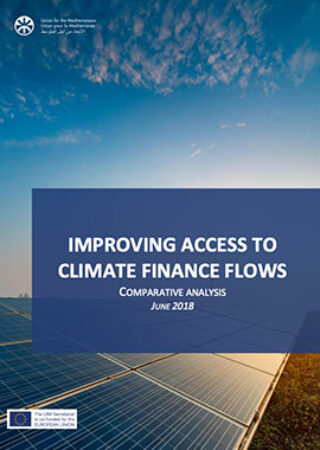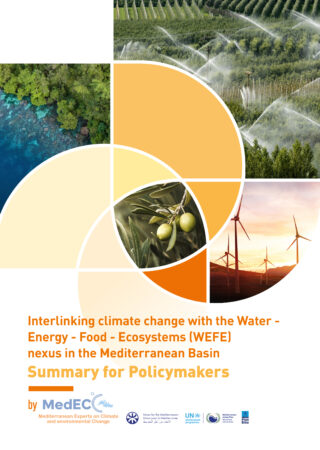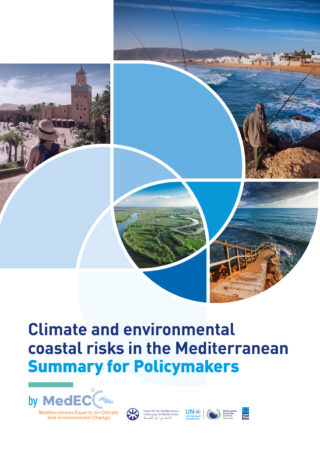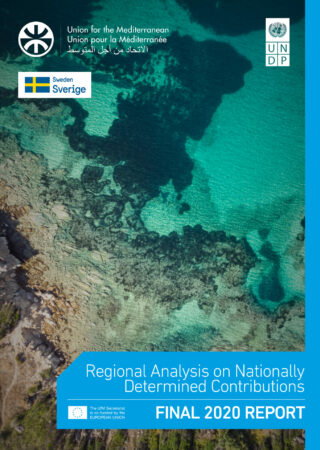
Improving access to climate finance flows
In response to the Union for the Mediterranean (UfM) Ministerial Declaration on Environment and Climate Change adopted in Athens on 13 May 2014, in which the UfM Member States call for an increased role of the UfM with regard to finance, technology transfer and capacity building in the context of international cooperation, the UfM has created the Regional Finance Cooperation Committee for Climate Action (RFCCCA) and in parallel the UfM Climate Change Expert Group (CCEG). The latter ensures that all UfM Member States have an accurate understanding of the UfM regional context. In the context of the Paris Agreement adopted by the Parties to the United Nations Framework Convention on Climate Change (UNFCCC) in December 2015 the UfM through the UfM Secretariat (UfMS) started to look at the financial flows committed to the UfM region by IFIs and other donors. In 2009, developed countries pledged to raise 100 billion USD per year by 2020 to finance global climate action. The UfM investigates how much of this funding reaches the UfM region and how this funding is tracked and reported on for the second consecutive year. Two RFCCCA meetings took place in Barcelona (March 2016, May 2017), initiating the cooperation through sharing information among IFIs and donors active on climate finance in the Mediterranean region. For two consecutive years, 2016 and 2017, the UfMS with the financial support from the European Union provided through the Integrated Maritime Policy / Climate Change (IMP_CC) Facility commissioned an expert organization, Climatekos, to analyse international public climate finance to the Southern and Eastern Mediterranean (SEMed) region1 . In addition, the different eligibility requirements have been analysed in a comparative analysis with a view to giving the beneficiaries of climate finance in the region first insights into better targeting the right sources of funding and what are the access requirements. In particular, the countries that receive limited international climate finance at present will benefit from categorizing and comparing the funding opportunities in this briefing. After a comparative overview matrix of main groups of funding sources the groups are investigated in more detail using strengths, weaknesses, opportunities, and threats (SWOT) analyses, followed by describing how to make use of the different sources best and related issues.
Author: Union for the Mediterranean
June 2018




